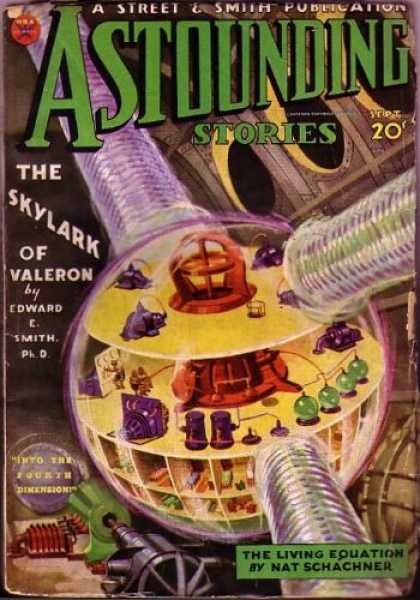|
LITR 4632: Literature of the Future |
Sample Student Final Exams 2011
|
 |
Meagan Hamlin
Loneliness Likely Awaits Us In The
Future
Stories based on visions of the future always have
the potential to draw in readers simply because the future is a mystery.
Humans tend to fear what they don’t understand,
which results in many attempts to predict our impending future.
I found it intriguing, almost addicting, to study
the different outcomes our planet could face thanks to creative imaginations and
talented authors.
The literature we studied depended heavily on
exploiting the way our world functions today and rightfully so.
The simple truth is that we hold the key to the
future, and as a planet we are less than likely to change our ways in order to
aid our future generations.
While each vision of the future has a different
aspect; high tech, low tech, utopia, or alien contact, they all shared one
thing; I do not care to live long enough to see them played out.
Each vision of the future mostly results in the
deterioration of the human relationship to each other, the earth, or actual
reality; however, this analysis obviously excludes ecotopian literature, which
seems to be the only future in which we can strengthen all bonds.
As we
become increasingly dependent on the world of technology, we tend to step back
from a way of life that emphasizes the importance of face to face human
relationships.
While technology is slowly replacing the need for
physical contact, we become less acquainted with basic human attributes such as
compassion and the urge to help those in need.
In an atmosphere such as the one created by William
Gibson in Johnny Mnemonic and
Burning Chrome the term “loner” is
taken to a new level.
Each character shows no sign of family and rarely
any indication of friends.
Johnny befriends Molly and Jack seems to somewhat
care for Rikki, but the real need for loving relationships seems to get lost in
virtual reality.
The eventual merging of human and technology only
worsens this predicament.
This is showcased in
Drapes and Folds in which Pearl lives
with her robot granddaughter, Xera.
Xera is a cross between human and robot, but Pearl’s
description of her is anything but human, “NewOnes were a ghastly mix of human
and roboid…in her rigid volymer face, real light blue eyes quivered like
jellies.”
Her relationship to Pearl is nothing compared to Pearl’s
relationship to her own grandmother.
This idea can simply not be recreated with
technology.
We can attempt to create actual world experiences through
virtual reality, but as in the unnatural effect of Xera’s eyes, virtual reality
could never live up to real world experience and feeling.
Laura
Moran eloquently stated in her 2007 final, “Consequently,
while technology strives to improve the future, the malfunctions that accompany
it may remind one that simple pleasures are sometimes the best.”
This
notion is revisited in The
Onion and I.
Living in virtual reality offers endless
opportunities and possibilities, but they are merely pretend.
The lives of the family reminded me of a child
playing house.
Perhaps they could see these things, but they were
not actually experiencing them.
A computer is not a living thing, although we
sometimes feel that we could not live without them.
Our connections should be contained to real actual
living beings, not an easy escape into “paradise.”
The high tech world was not enough to appease the
boy’s father’s connection to the earth and onion.
Human connections and bonds cannot be forgotten, and
they cannot be forged, for they are precisely what make us human.
In the father’s heart low tech beat out high tech,
because no matter how real and perfect his life seemed in the virtual world, it
wasn’t ever as real as the smell and taste of an imperfect onion.
According to these visions of the future, our world also has the ability to fall
deep into the low tech spectrum.
Octavia Butler is a writer who highly favors low
tech scenarios.
Much like
Parable, Butler created a world in which people were not safe from each
other in Speech Sounds.
By stripping some people of basic skills Butler
created a great divide between the abilities of people and the heightened sense
of jealously caused chaos.
Those who are unfortunate enough to have lost their
ability to speak and read or write became increasingly aggressive and violent.
This
story could not be further from virtual reality, yet the loss of connection is
still present.
Rye has been alone for three years much like Johnny
and Jack, and similar to Pearl, remnants of her past life haunt her.
No
matter how much our society advances technologically or regresses on the
evolutionary scale, the future looks bleak according to literature of the
future.
High tech vs. low tech doesn’t matter much when humanity
loses either way.
The futures modeled by both of these outcomes are
grim and dismal.
It appears that they only hope we have is that of an
ecotopia.
